Live Commentary
11:25am Wednesday: Pleased to report that I survived the Melbourne Earthquake! In Canada, 15 seats remain in doubt, 10 with Liberal leads. I believe postal votes in many seats were verified today, and will be counted tomorrow.
2:32pm Liberals plus NDP is currently 184 seats, Libs plus Bloc is 189 seats. Both combinations easily exceed the 170 required for a majority. Very much a status quo result.
2:15pm In 2019, the Tories won the popular vote by 34.3-33.1 over the Liberals, but lost the seat count by 157-121. Current popular votes are 34.1-31.9 to the Tories, yet the Liberals lead on seats by 156-122, with 30 Bloc and 28 NDP.
1:08pm The Conservatives are now 0.1% ahead of the Liberals in vote shares.
1:07pm Despite the clear seat win for the Liberals, the Conservatives now only trail them by 0.1%, and are very likely to end up with more votes. So once again vote wastage in safe seats hurts the Conservatives.
12:48pm 150 Liberals, 119 Conservatives, 28 Bloc, 27 NDP, three Greens. The Conservatives actually have a 48-39 edge over the Liberals on those called “Elected”, owing to too much vote concentration in safe seats.
12:41pm Seat changes have swung to Liberals down eight, Conservatives up five, Bloc down three and NDP up six. Liberals led Conservatives by 157-121 seats in 2019.
12:32pm Seat changes are now NDP up five, Liberals and Bloc down one and Tories down three.
12:28pm CBC News is CALLING a Liberal government. That means they project Liberals will win the most seats, majority still in question.
12:25pm 131 Liberals, 71 Tories, 27 Bloc, 18 NDP. Liberals up four, Tories down six, NDP up four, Bloc down two.
12:17pm Liberals lead Conservatives by 122-56 with 24 Bloc and 18 NDP. Liberals making nine net gains, Conservatives nine net losses.
12:05pm Liberals leading Tories by 83-42, with 14 NDP, 14 Bloc and one Green. Liberals up six, Tories down five, Bloc down three, NDP up two.
12:01pm Liberal gains down to three, Tory losses at two, NDP up three and Bloc down four. The final polls have just closed Canada: British Columbia.
11:57am Liberals won 157 seats at the 2019 election. They’re currently showing as making a net eight seat gain. They could win a majority (170+ seats).
11:54am 55 Libs, 25 Tories, 6 Bloc, 6 NDP, 1 Green. Liberals making six net gains, Tories four losses
11:43am Liberals lead by 39-15 with 4 Bloc, 1 NDP and 1 Green.
11:35am Liberals lead by 31-11 with one Bloc.
11:16am Liberals leading by 26-8 with no seats for anybody else. There’ll be a deluge of results when the large majority of polls close at 11:30am.
11:03am Liberals leading by 24-9 with one Bloc. The Conservatives are making five gains, the Liberals four losses, and the NDP and Greens one loss each.
10:40am Liberals leading by 24-8 with one seat for the Quebec Bloc. The NDP seats have disappeared. Gains and losses are Conservatives up four, Liberals down three, Bloc up one, NDP and Greens both down one.
10:17am Liberals lead by 23-7 with 2 NDP. Gains and losses are Liberals down three, Conservatives up three, NDP up one and Greens down one.
10:03am Liberals now leading by 16-4 with one NDP; that’s two Conservative gains.
9:55am Liberals now leading by 12-2 with one NDP, as Conservative gains reduced to one. Atlantic Canada (where these early results are from) is a stronghold for the Liberals.
9:47am Tuesday Results are in from 10 of the 338 seats, and the Liberals lead the Conservatives by 6-3 with one NDP. If those results hold up, it’s three GAINS for the Conservatives. Canadian media list seats as “leading” and “elected”, with seats listed as “elected” when called for a party.
Guest post by Adrian Beaumont, who joins us from time to time to provide commentary on elections internationally. Adrian is an honorary associate at the University of Melbourne. His work on electoral matters for The Conversation can be found here, and his own website is here.
Justin Trudeau called the Canadian election two years early, and the results will come in today. Canada uses first past the post to elect its 338 members of parliament.
The final CBC Poll Tracker has Trudeau’s centre-left Liberals on 31.5%, followed by the Conservatives on 31.0%, the left-wing NDP 19.1%, the right-wing populist People’s Party (PPC) 7.0%, the left-wing separatist Quebec Bloc 6.8% and the Greens 3.5%. Final polls range from Liberals by six (EKOS) to Conservatives by four (Forum).
Although the Liberals and Conservatives are nearly tied on vote shares, the Tracker gives the Liberals a large seat lead of 155-119 over the Conservatives, with 32 NDP and 31 Bloc. The Liberals are given a 17% chance to win a majority (170+ seats) and a 57% chance to win the most seats but not a majority.
The Liberals had an eight-point lead when the election was called, but lost ground quickly in the first two weeks to trail the Conservatives on vote share. But the rise of the PPC appears to have wrecked the Conservatives’ hopes.
Most of Canada uses staggered poll opening and closing times, in which polls in the trailing time zone open and close an hour earlier than those in the leading time zone. The exceptions are polls for seats in Atlantic Canada. Here are the Canadian poll closing times today AEST:
By 9:30am, polls in the four small provinces of Atlantic Canada (32 of the 338 seats) are closed. Newfoundland (seven seats) closes 30 minutes earlier. At 11:30am, the large majority of polls close. At 12pm, all polls are closed in Canada, with British Columbia (42 seats) closing.
Owing to COVID, there has been a surge in the number of postal vote applications, with over 1 million requests. Postal votes will not start being counted until tomorrow, delaying the results in close seats. According to an Ipsos poll, NDP and Liberal voters were more likely than Conservatives to say they would vote by mail.
German polls relatively stable five days before election
The German election will occur this Sunday, with polls closing at 2am Monday AEST. If my 2017 article for The Conversation on the German election is accurate at this election, final results will not be available until Monday afternoon AEST.
The Guardian’s German poll aggregate has the centre-left SPD on 25.6%, followed by the conservative CDU/CSU on 21.8%, the Greens 15.8%, the far-right AfD 11.1%, the pro-business FDP 11.1% and the far-left Left 6.3%. The overall vote for left parties leads the overall right vote by 47.7-44.0. I wrote last week that, for the likely formation of a left government, the Left party needs to exceed 5% or win at least three of the 299 FPTP seats.
I think Conservatives will be the single largest party. I think Trudaeu will be punished for going early. I don’t know whether Conservative party forms the government or not .
With first past the post the Consevatives waste a lot of votes winning safe seats easily. Makes it hard for them to get the most seats.
Canada:
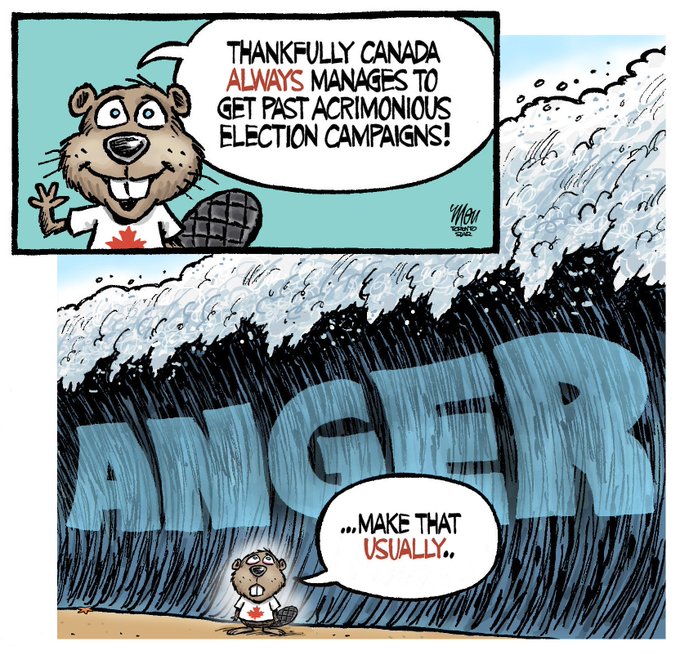
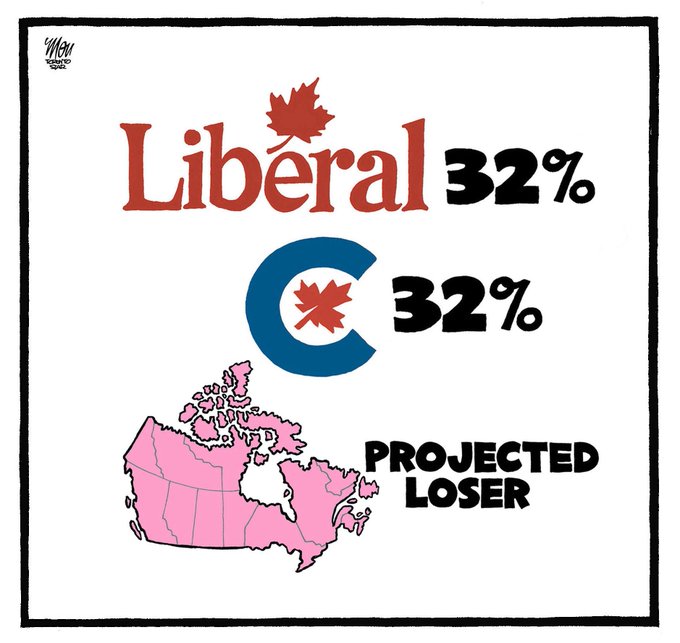
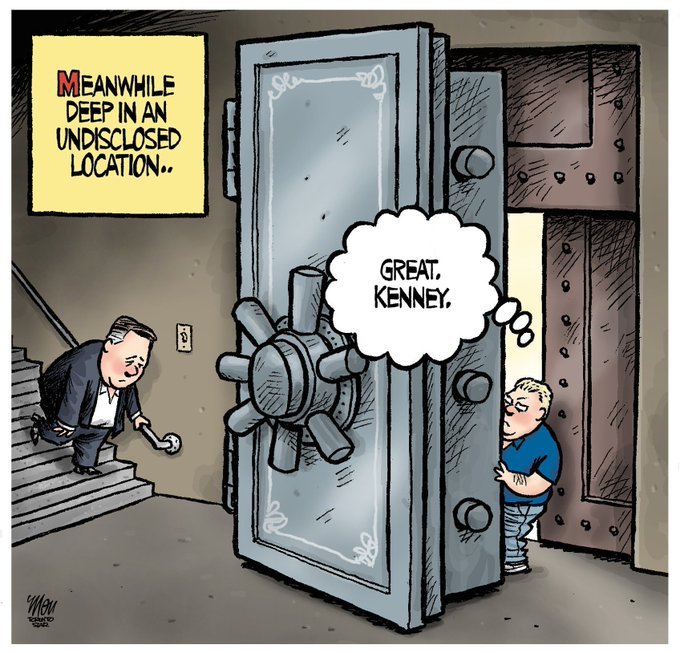
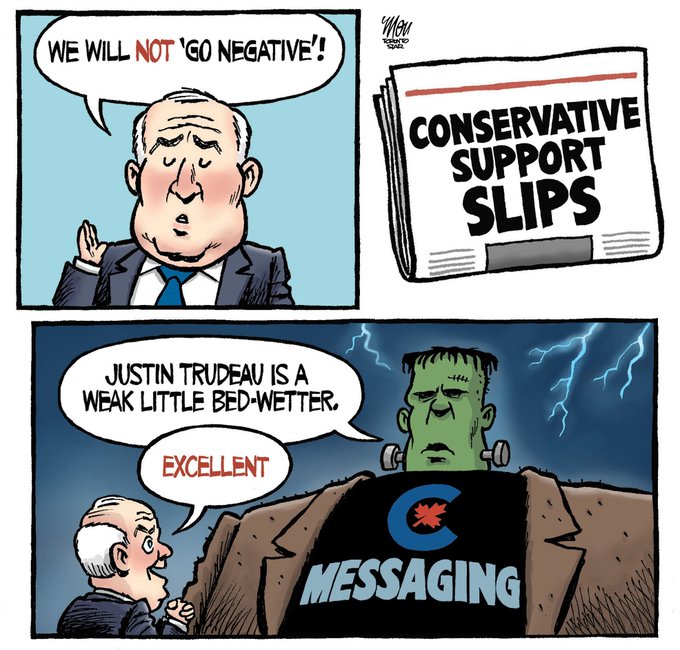
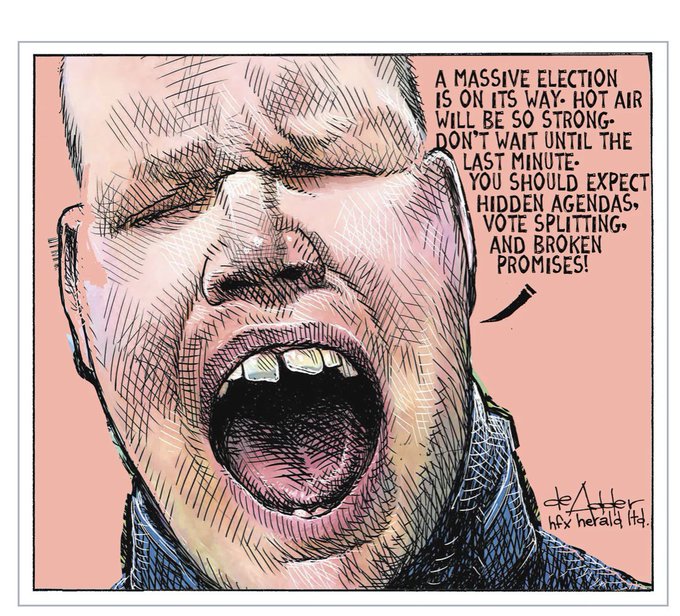
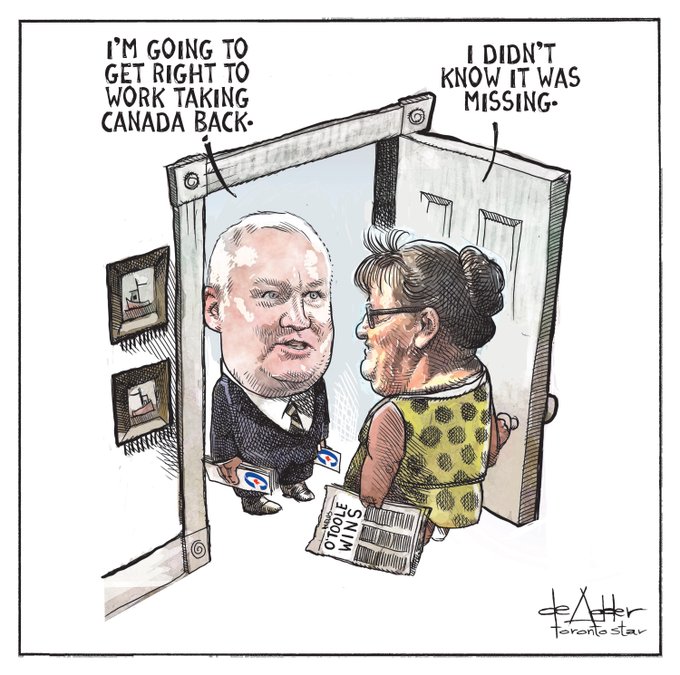
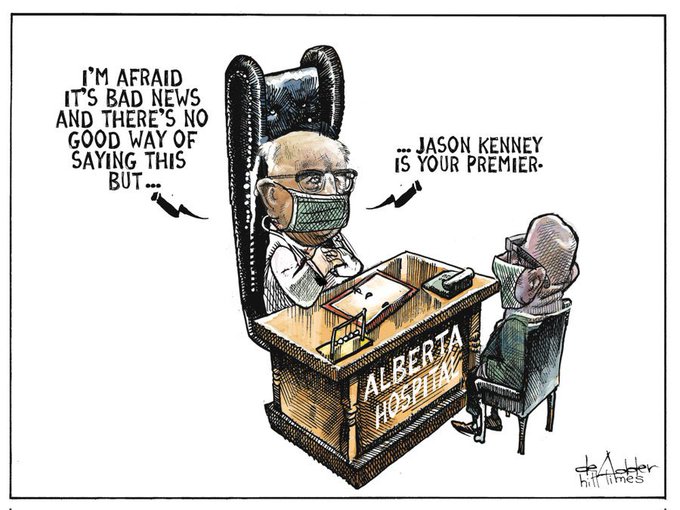
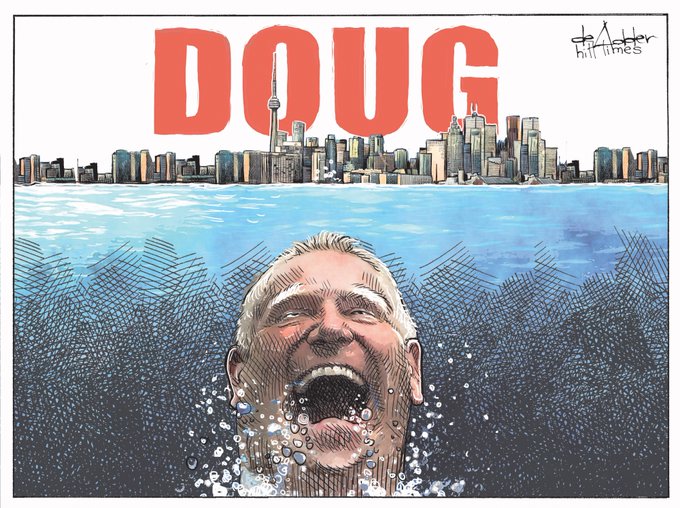
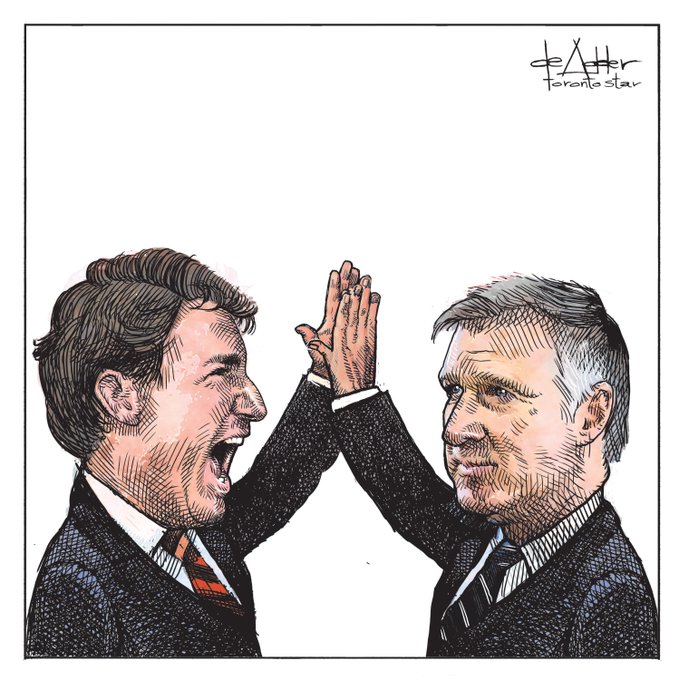
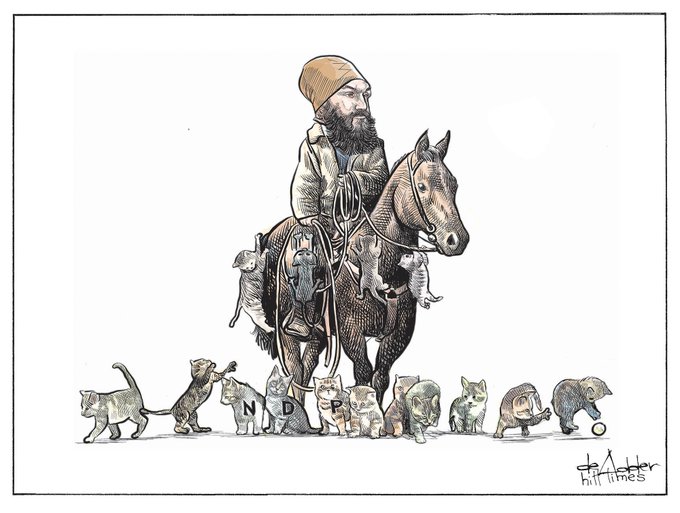
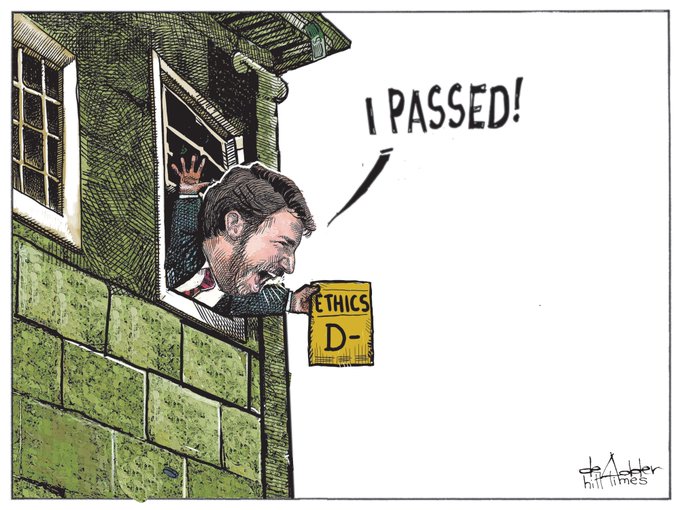
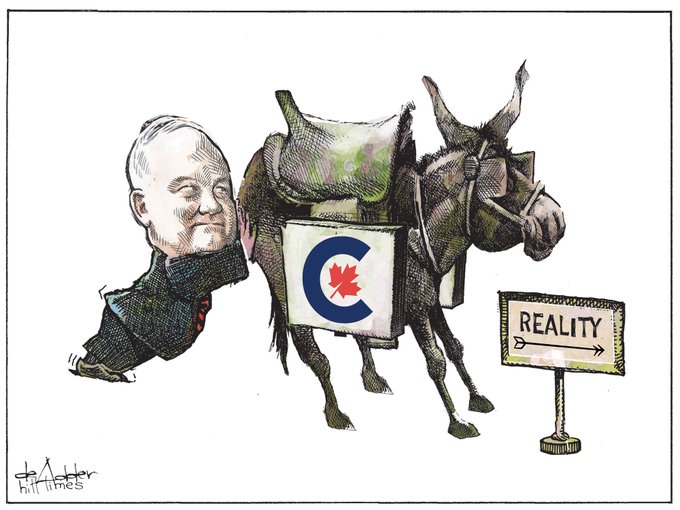
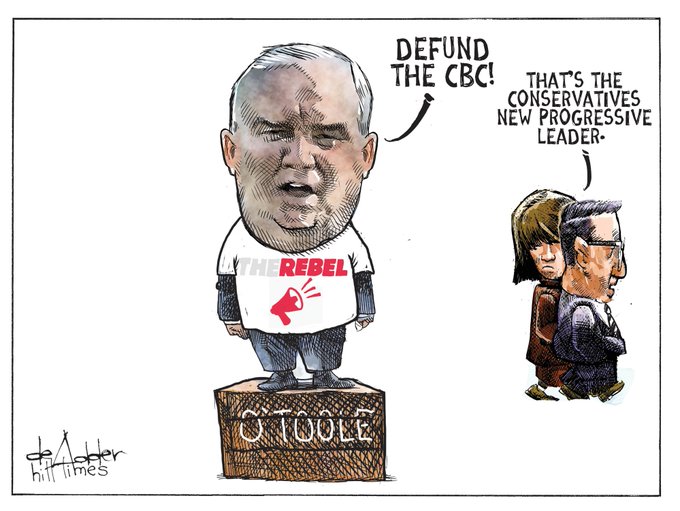
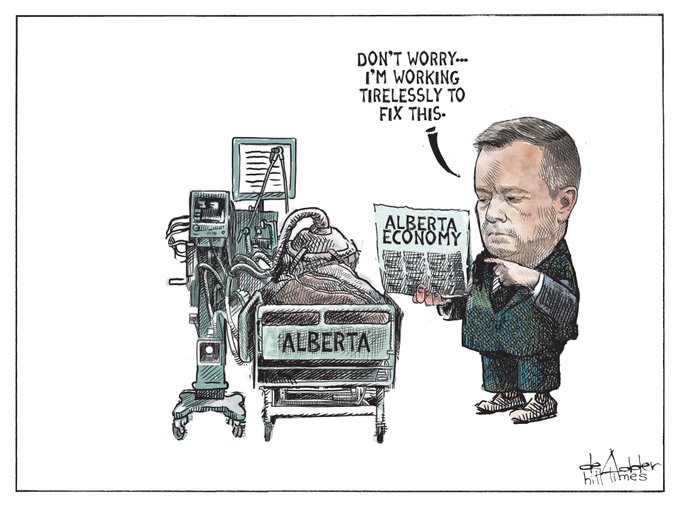
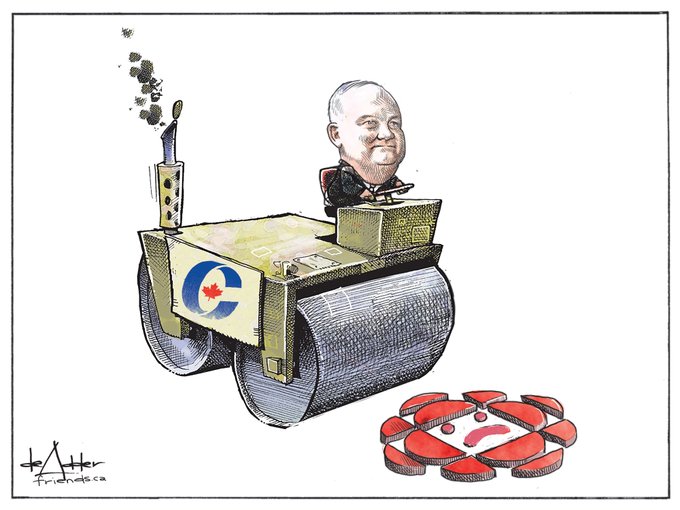
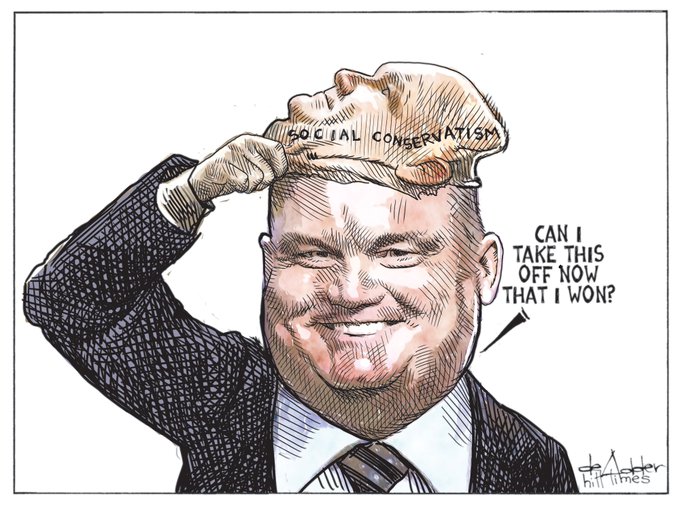
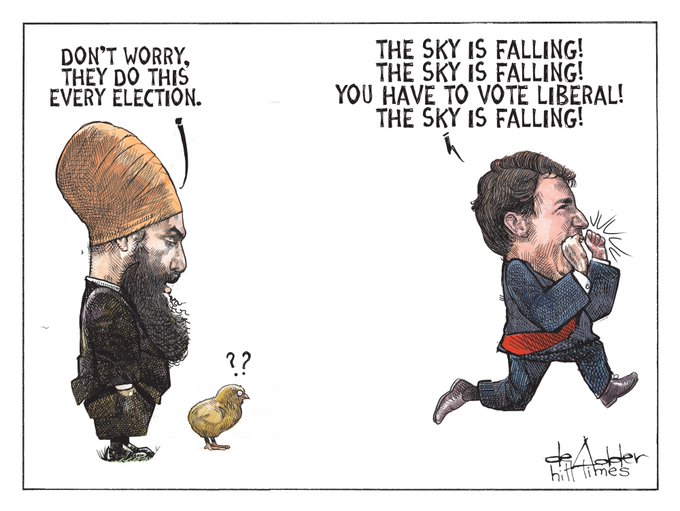
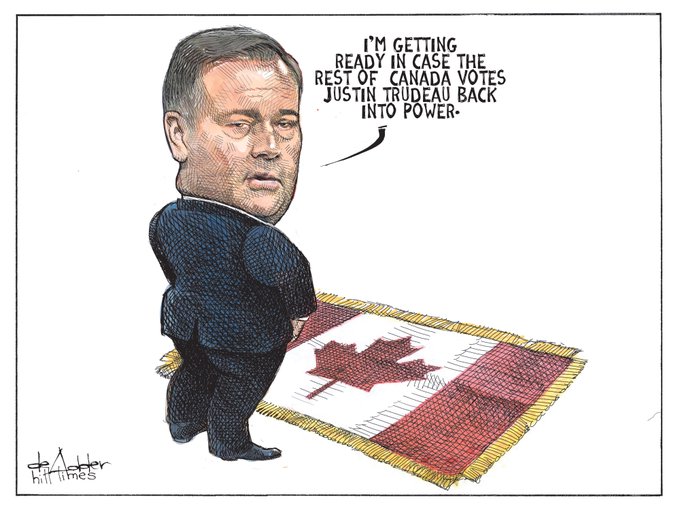
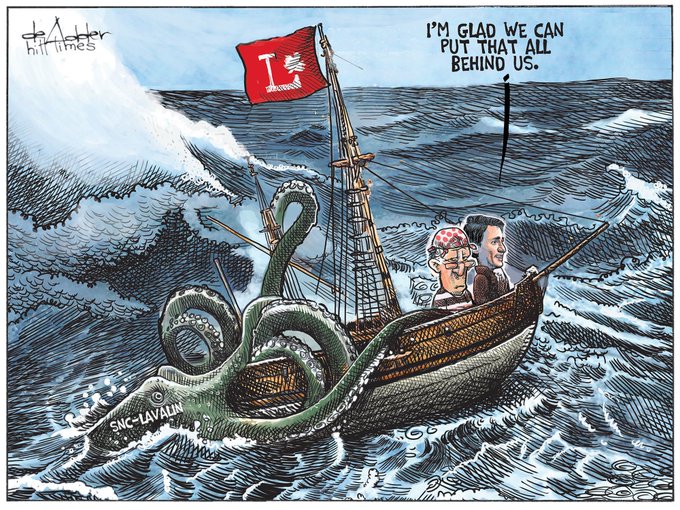
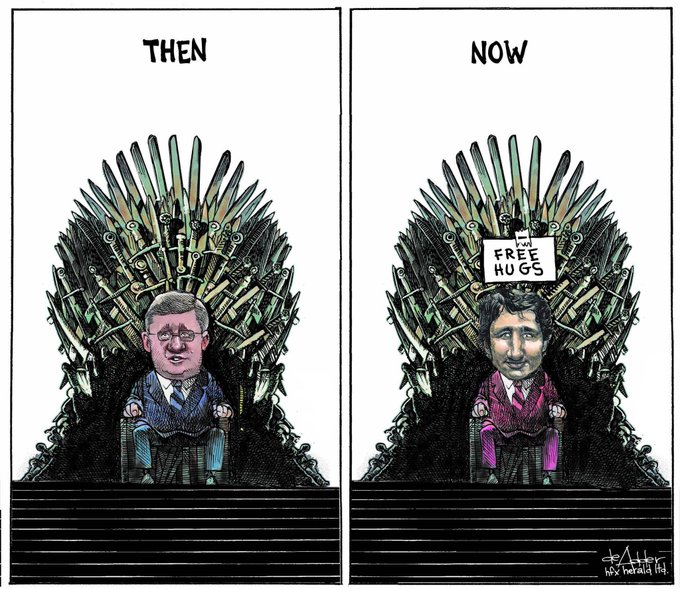
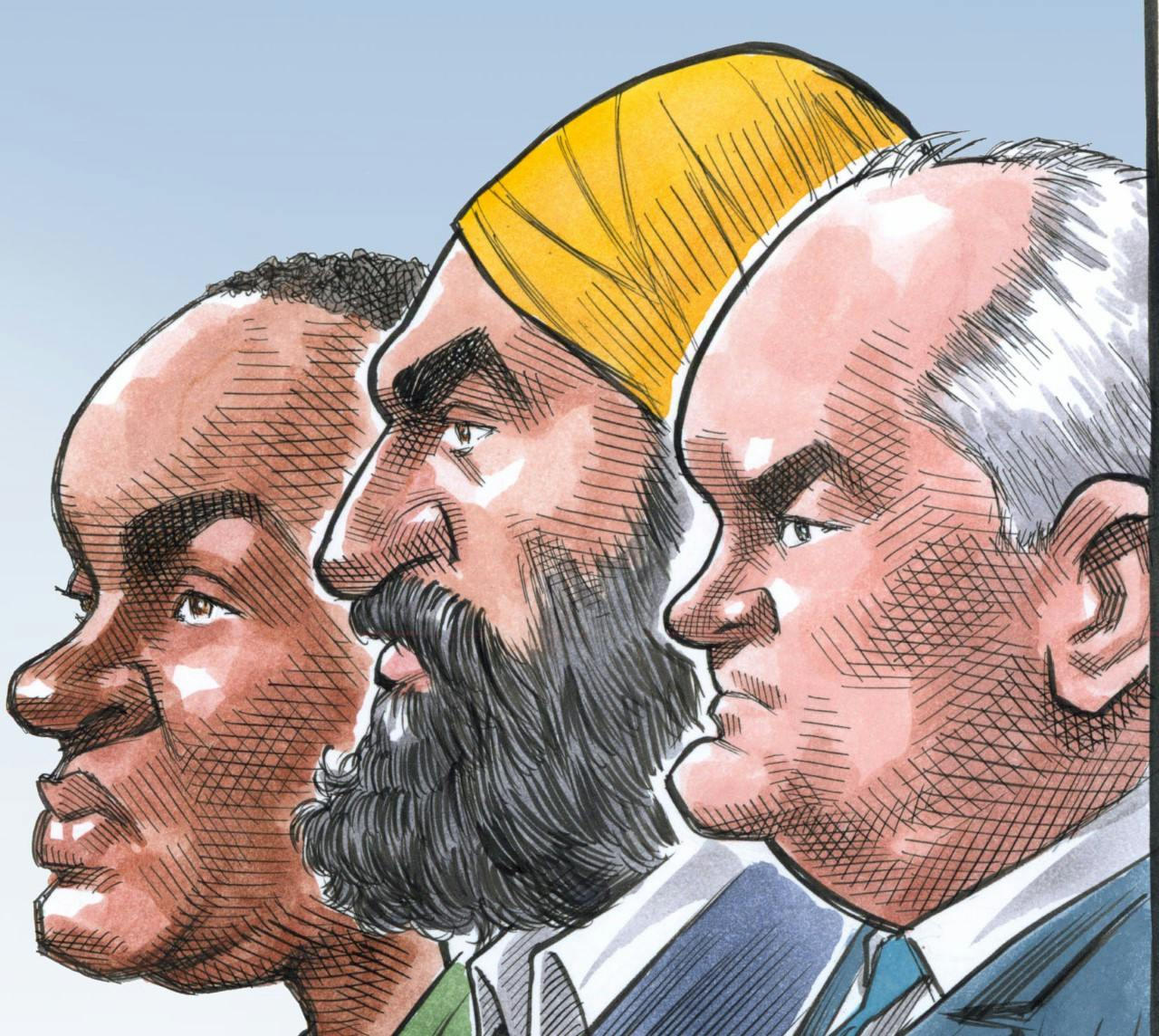
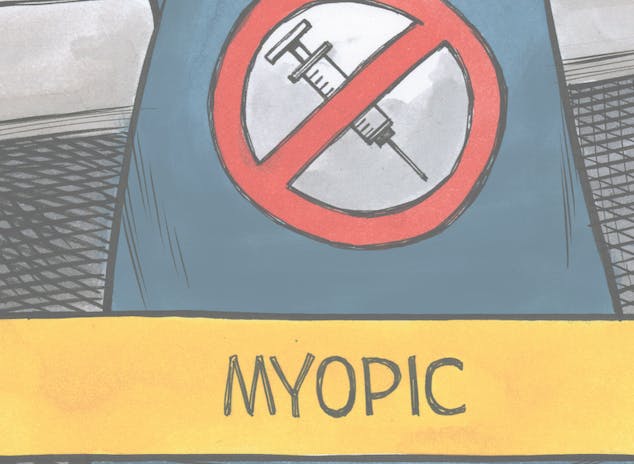
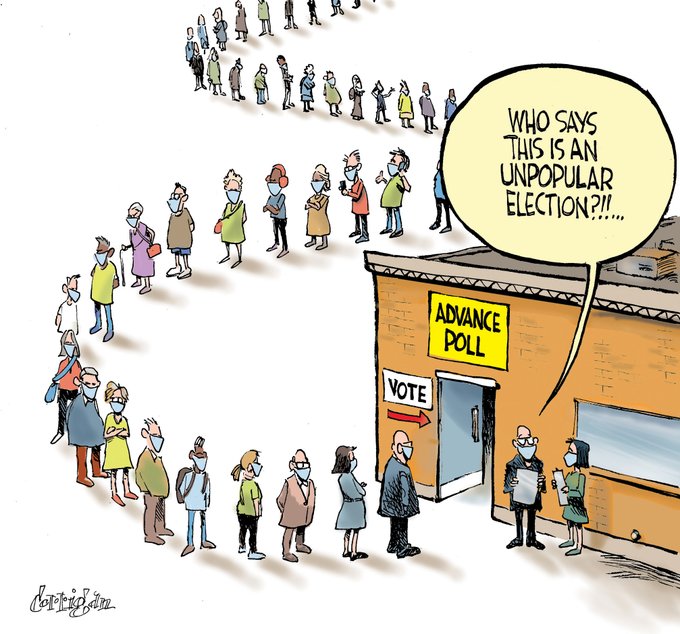

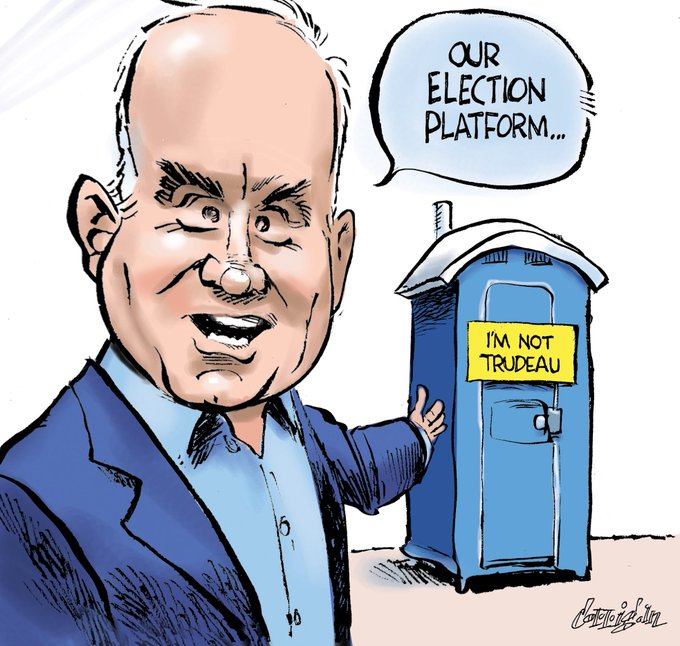
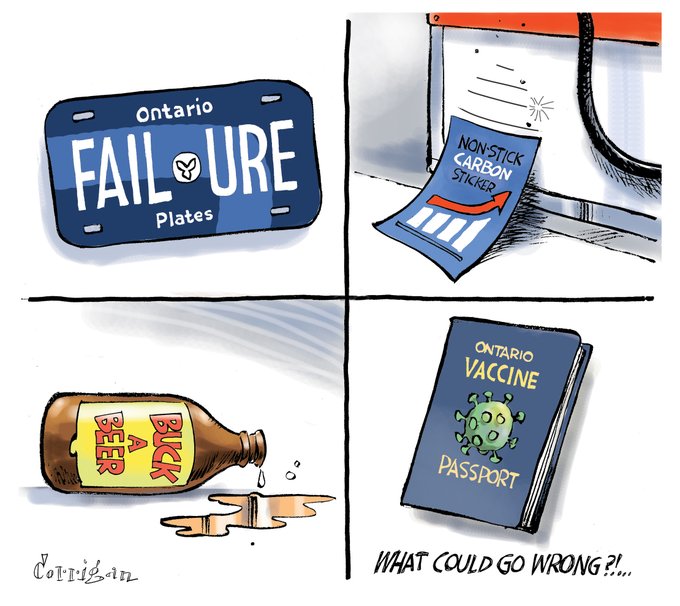

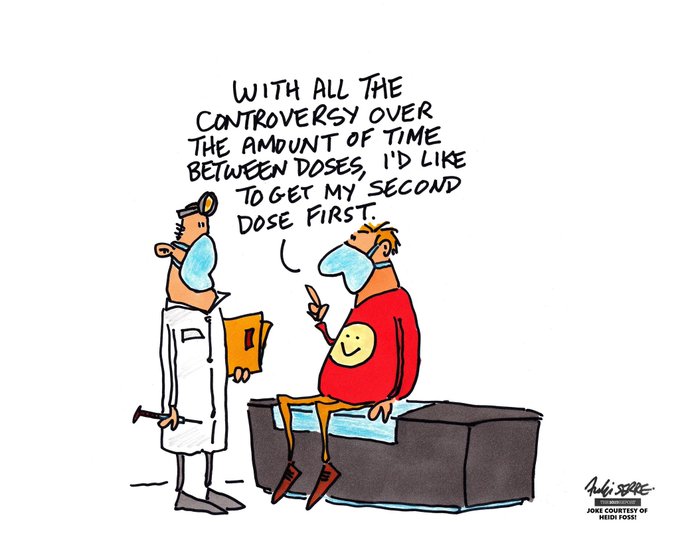

I love it when honest letters get printed in the Editorial…

David Suzuki endorsed the NDP if you are wondering why the Greens may be in trouble. CBC saying a cohort of Libertarian voters in Nova Scotia.
Edit: May be former voters of course.
ausdavo @ #2 Tuesday, September 21st, 2021 – 8:29 am
It also means the Conservatives benefit heavily from fragmentation of the progressive/left-leaning vote between the Liberals, Greens, and NDP.
“David Suzuki endorsed the NDP if you are wondering why the Greens may be in trouble.”
I doubt that it has anything to do with David Suzuki.
The Canadian Greens, like their Australian counterparts, are comprised of people who are unable to get along with anyone else.
https://www.cbc.ca/news/politics/annamie-paul-green-party-legal-action-1.6111847
https://www.reuters.com/world/americas/canadas-green-party-turmoil-leader-resists-calls-step-down-2021-06-15/
Have the Canadian coverage ticking over in the background. It is striking how much more informative is the coverage in Australia.
Concepts like “booth” matching seem to be non-existent. Swings are not embedded in the displays so as they scroll through seats you get very little sense of what overall changes might be happening. Yet to see an overall swing/vote estimate.
I wonder if a FPTP system makes for lazy coverage.
“David Suzuki endorsed the NDP if you are wondering why the Greens may be in trouble. CBC saying a cohort of Libertarian voters in Nova Scotia.”
***
The Canadian Greens have been going through a rough patch lately. This was never going to be a good election for them.
Good to see Trudeau seems to have held on. Was looking a bit iffy when he first called the election.
Cant find a good Canadian Election site…maybe its too early?
It’s really hard to see how the Greens are even a thing in Canada given that that a lot of their core policies overlap with the NDP.
This is obviously not the case in Australia where there isn’t another well-established, electorally competitive party to the left of the ALP.
https://www.macleans.ca/news/canadian-federal-election-2021-live-results-map/
Seems to take a while to load for some reason, no doubt being hammered, but there’s a lot of data there if you’re patient.
Some live-stream links for anyone interested:
CBC: https://www.youtube.com/watch?v=uoVkR0IxXV4
660 News: https://www.youtube.com/watch?v=Dhkp9k0oLss
Global News: https://www.youtube.com/watch?v=FplSFOFX_dw
CPAC: https://www.youtube.com/watch?v=zvdDC8CD54Y
Disclaimer: I have no idea how reputable these channels are.
The Greens haven’t actually done too badly considering their campaign was a complete disaster. Mike Morrice has actually gained Kitchener Centre, while Paul Manly has narrowly lost Nanaimo-Ladysmith and Elizabeth May has held onto Saanich-Gulf Islands.
Admittedly Annamie Paul is a destructive force within the party who has come an awkward fourth in Toronto Centre, and should be removed to save the party from more close calls.
“considering their campaign was a complete disaster”
Sounds like their campaign was an honest depiction of the party.
It appears that the Liberals have won about the same number of seats as they did in the last election, despite predictions that the Conservatives would somehow improve their own position.
Unfortunately the Canadian Greens aren’t like the Australian Greens policy-wise, and the accusations of anti-Semitism, transphobia, racism, sexism, homophobia and misogyny within the party, combined with blocking of funding for Paul’s campaign and others trying to get her kicked out of the party for being an absolute pain (her staff included) meant the campaign was DOOMED.
The Greens are sitting on 2.17%
Any lower and they’d be an asterisk
A bit late to this, is there any chance whatsoever the NDP won’t align with Trudeau?
Completely right about the Canadian Greens not being like the Australian Greens. Although they are an environmentalist party, their policies on other issues have often not aligned with the majority of other parties in the Global Greens network. For awhile, they were strongly influence by a large religious faction.
And in Canada’s multi-party yet first-past-the-post they often struggle to find a position.
Absolutely. All countries have different political battles and issues. Political parties of said countries, regardless of how aligned they might be with international counterparts, can still have specific issues, quirks and problems that apply exclusively to them.
So, with that being said, it would be delightful if we could not treat the outcome as a proxy war for the tedious Australian Labor v. Greens debate on here, and keep that nonsense in the main thread.
What will be interesting is if there is any new push to reform the electoral system, given that the Liberals have won this election despite falling almost 2% behind the Conservatives (who are generally the ones opposing reform too).
And they need to do something about their senate which is a joke a half.
Still many votes to count but it’s shaping up to be more or less a status quo results (with a seat moving here or there.)
If this were a normal scheduled election, it would be a good result for Trudeau and the Government; they’ve extended their life by another term. However, it wasn’t. It was a snap election to try and get a majority government and, instead, it’s just extended the status quo by two years more than it normally would have been. I think many Canadians might be justified in asking exactly what the point of all of this was.
The main problem the Canadian Greens have is that they’ve spent the last couple of years fighting each other. Lots of internal drama over their leadership and direction. They’ll come good eventually but they need to get their house in order first. They should use this term to do exactly that so that they give themselves a better shot next time.
The problem with electoral reform is that the groups required to implement it are the people who don’t want it.
While it makes sense from an outside perspective to switch to something like IRV (especially from Australia, where it’s been the norm for a century) it’s important to remember that the operatives and strategists have spent their whole political lives operating in the current system and basing their strategies on the existing system. It’s very hard to convince them that a new system will be better, as it will mean that they have to relearn it all and adapt (not to mention fearing they become redundant.)
It’s an absolutely selfish and unjustified reason but, in case you’re wondering why it’s a struggle for countries to move to better electoral systems, a lot of the resistance is the above. (Not to mention voters who don’t want to be confused with new rules about how to fill a ballot.)
I think it’s essential that IRV be adopted in a lot of FPTP systems but it’s going to be a tough fight to implement. But, as we’ve seen with the US (in places like Maine), there are shoots of hope for the future.
And, yes, the Canadian Senate is a joke. It’s a weak attempt by Canada’s very pro-British colonial founders for Canada to have its own House of Lords. Either democratise it or get rid of it.
Whoever posted a load of cartoons please don’t do it again. It’s not clever and it’s not funny.
OK, I am going to take an amateurish stab at “What if Canada had preferential voting?”
Let’s assume 80% of Green prefs go to Liberal, 60% of NDP and 60% of Bloc.
Liberals get 32% primary vote plus 2 (from Green), another 10.5 (from NDP and 5 (from Bloc) for 49.5.
Conservatives get 34 plus not much (Green) 7 (NDP) and 3 (Bloc) for 44.
That leaves 6.5% ‘other’ – 3 to Lib and 3.5 to Con (guesses.)
My guess at 2PP is about 52.5 Lib to 47.5 Con. Of course, many minor party seats disappear, as preferences overwhelm minor party first pref leads.
The exception might be Bloc – like Australia’s Nationals, a low national vote, but favoured by being region-specific. In the case of Bloc, its focus is French-speaking Quebec.
My guess is Libs would win outright majority under preferential voting, followed by Cons, with Bloc becoming third party (several NDP seats might go to Libs as prefs allocated.) Only a guess, though…
Total nothingburger of an election – waste of hundreds of millions of dollars for no change.
The PPP (right wing minor party) impact across a number of seats – where their vote significantly higher than the margin the Conservatives lost by – will be interesting to detail in due course.
Whilst an overall failure for Trudeau considering the aim to get a majority, in the end he is probably feeling relieved tonight that the Liberals didnt lose 10+ seats. I think the pathway to gaining enough seats to form a majority was most likely to come at the Bloc’s expense in Quebec – just never on the cards. Think Alberta’s covid 4th wave disaster came a bit to his rescue in the last week or so.
Gosh these ridings are tiny – frankly 338 seats of <10,000 voters each is a bit nuts. Probably should be half?
What a shocker for the Greens leader – couldnt even crack 1000 votes in finishing 4th in her electorate.
Snappy, i’m not so sure that is right.
NDP with 17% depending on its concentration i would think is the highest beneficiary of preferential voting, in every seat they finish 2nd odds are that they would receive both Liberal and Conservative preferences?
And the PPP impact i referred to above, i think on preferential voting would probably deliver at least 10 seats to the Conservatives – perhaps a lot more. All to be dissected when the counts are finalised.
“ My guess is Libs would win outright majority under preferential voting, followed by Cons, with Bloc becoming third party (several NDP seats might go to Libs as prefs allocated.) Only a guess, though…”
I suspect that the progressive forces in Canada start 5% ahead of their Australian, British and American counterparts because of an absence of Murdoch. In Australia, this problem is compounded by the fact that the rest of the mainstream media is LNP adjacent to an extent that is absent from America, and Canada and NZ. The rest of the media in the UK is pretty awful though, it has to be said.
Canada’s population is 37.6 million, so it has around 100,000 people per seat. There’s more counting to come that will make the votes : seat ratio greater.
Worth remembering that population doesn’t equal eligible voters. Population counts ineligible people like children too. Secondly, Canada doesn’t have compulsory voting and it doesn’t always have the best turnout, so that thins out the voter numbers as well.
Million of mail in votes not yet been counted and won’t be until (Canadian) Tuesday. Then there will be the usual post election checks and no doubt a few court mandated recounts in very close riding.
There are several ridings where the mail in votes will affect the final results.
So final vote share and seat count won’t be finalised for a few days yet so hard at present to comment on final vote share.
And impossible to say until then if the PPC made any actual difference to the results though CBC commentators did show where (current) liberal votes are leading in some seats are less than the CP and PPC combined totals. But that makes an assumption that PPC voters would otherwise have voted for the conservative candidate if the PPC hadn’t put up candidates instead of sitting on their hands.
And like in many nations electing representatives on a constituency basis some parties will rack up huge majorities in individual seats which aren’t reflected if you look at vote share and seat share. Sometimes that’s just how it is and not down to gerrymandering.
Literally hundreds millions of dollars wasted, again, by politicians and their staff making stupid short term decisions for the sole benefit of their personal careers, all the while kidding themselves that they’re more talented at politics than they actually are.
Snappy Tom says:
Tuesday, September 21, 2021 at 3:00 pm
OK, I am going to take an amateurish stab at “What if Canada had preferential voting?”
————————————–
Very astute analysis Tom. Begs the question again why did the Liberals reneg on going preferential when they had a majority. I can understand some issues with proportional which might have more of a negative impact on the Grits.
Here is my take on the exercise as posted on the main thread:
Put it in this context:
The result analogy, if applied to an Australian election,
would mean that Labor would have almost twice as many seats as the LNP.
As results stood at the end of election day, Canada would send 216 progressive MP’s to the House of Commons in Ottawa as against 122 Conservatives. And that’s with “first-past-the-post” voting without the advantage of preferential electoral system.
Can someone out there explain the striking contrast between two Commonwealth countries, federations with a Westminster style government. They have similar challenges of geography, indigenous populations and both are resource rich.
Alberta and Saskatchewan which returned almost all Conservatives are the Queensland and Western Australia of Canada. Alberta could also be called the Texas of Canada, both economically and socially. That is ironic because both prairie provinces went broke during the 1930’s and were bailed out by Ottawa until they struck oil at Leduc in 1947.
If you watched the television coverage on election night you would have been struck by incredible diversity among those who chose to run for Parliament. It was particularly striking in the number of women, women of color and women from multi-cultural communities. Not to mention the diversity in the heritage of the broadcast reporters for the networks.
As a somewhat hybrid denizen of both countries, I love both but despair of the Australian electorate’s refusal to reflect the realities of the 21st century.
“Canada election: Conservative leader Erin O’Toole addresses supporters after Trudeau win
Speaking to supporters and party faithful early on Tuesday morning, Conservative leader Erin O’Toole framed the outcome of the election as a successful bid by his party and their supporters to deny Liberal leader Justin Trudeau his bid to secure a majority government.”
Oh, I see, the objective of the Conservatives was just to deny Trudeau a majority government…. Well done, Erin, you have achieved your goal, you are a true hero!!……. Hmmm, whose hero?
“Firefox2 says:
Tuesday, September 21, 2021 at 2:53 pm
The main problem the Canadian Greens have is that they’ve spent the last couple of years fighting each other. Lots of internal drama over their leadership and direction. ”
I just had a look at the results for the Greens in Canada since 1984. The best they have done so far was in 2008 when they got 6.8% of the votes….
Have they been fighting each other for the past 37 years?…. Isn’t it time to stop?
Conservatives lost. Good.
“Have they been fighting each other for the past 37 years?…. Isn’t it time to stop?”
***
Doubt it, although they aren’t a party that I have followed closely. I know they have had troubles of late though. They certainly aren’t the force that the Australian Greens are, that’s for sure. Nor are they the NZ Greens, Scottish Greens, English Greens, German Greens, or Irish Greens, all of whom have had great success in recent times. The Canadian Greens are a bit of an outlier, which points strongly to their internal dramas as the cause.
Havent paid attention to canada, congrats to treadeu
Im curious about what this means for climate change and minimum wage. Canadian low wage jobs are not enough to pay rent in big cities and of course climate change should matter in every election
The reason that the Canadian Greens do badly is because they have no reason to exist. The NDP are the left-wing party, the Liberals are centrist and the Conservatives have a truthful name.
Another thing odd in Canada is that the major parties federally are not attached to the all province parties. So the Liberal Party of British Columbia is not aligned with the federal party and often supplies candidates for the Conservatives. in the federal elections.
The Liberals have an ideological range of centre to centre-left, with a couple of leftists sprinkled in on the edge. The NDP is centre-left to left-wing and more socially democratic.
You can draw some parallels between the relationship of the Liberals and the NDP in Canada, and that of Labor and the Greens in Australia. Not the same, of course, but there are some similarities.
What an oxymoron,,, Progressive Conservative party.
Malcolm Turnbull has been dragged out again , this time to attack Morrison and his cronies on their lies about their position on climate change